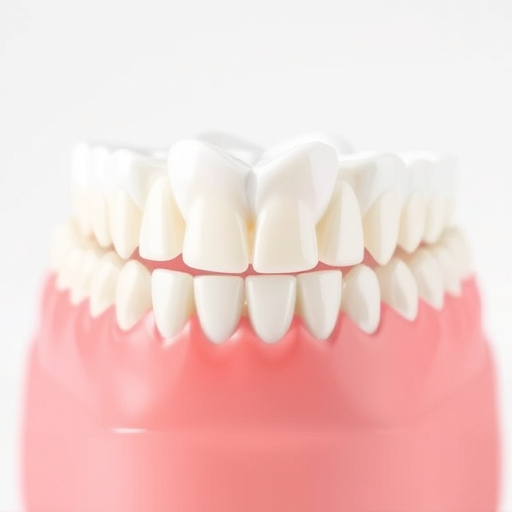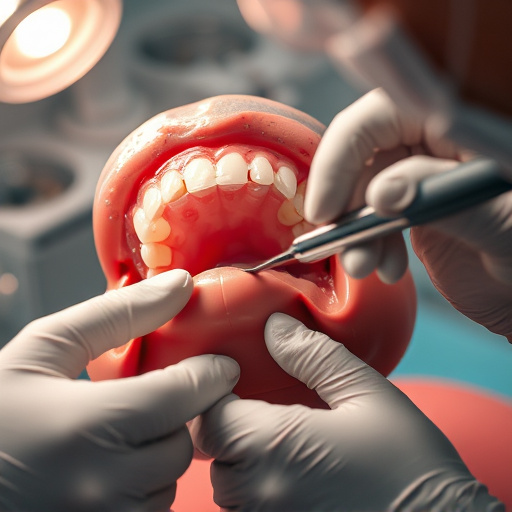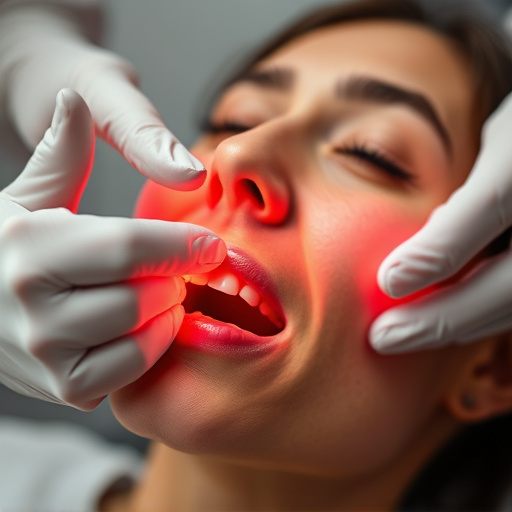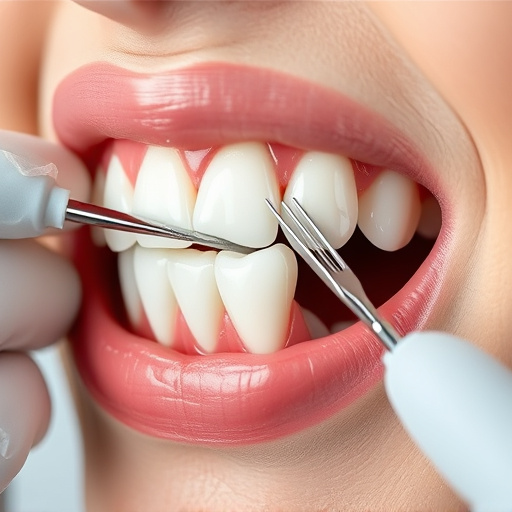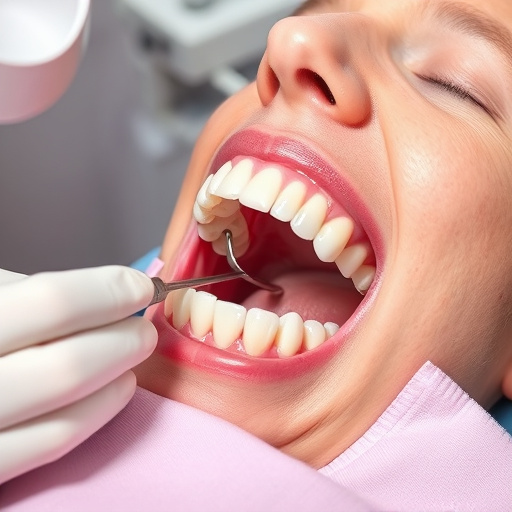Oral surgery procedures address complex dental issues from simple extractions to advanced reconstruction, including orthognathic surgery, implant placement, and emergency care. Sedation options alleviate anxiety, and proper post-care, including good oral hygiene and monitoring health, ensure a seamless recovery. Emergency dental care plans and preventive dentistry enhance overall outcomes.
Considering oral surgery procedures? You’re not alone. From tooth extractions to complex jaw surgeries, these treatments are essential for oral health and aesthetic improvements. This guide delves into common oral surgery procedures, exploring the diverse sedation options available to ensure a comfortable experience. Additionally, discover valuable post-surgery care tips to support a smooth recovery. Understanding these aspects empowers you to make informed decisions about your dental well-being.
- Understanding Common Oral Surgery Procedures
- Benefits and Types of Sedation for Dental Work
- Post-Surgery Care and Recovery Tips
Understanding Common Oral Surgery Procedures
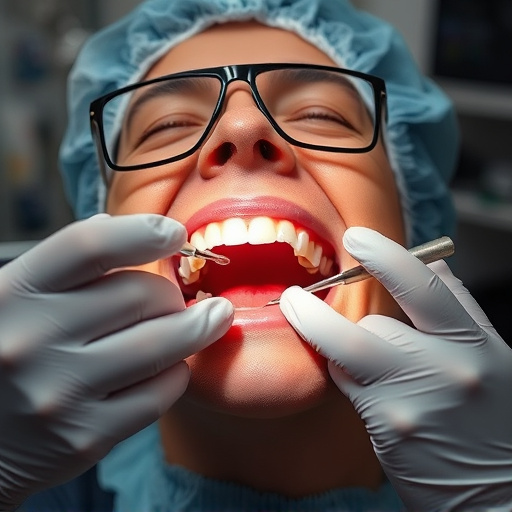
Oral surgery procedures are a common necessity for many individuals, addressing various dental and jaw issues that require more than routine oral exams or children’s dentistry. These surgeries range from simple extractions to complex reconstruction and rehabilitation. One of the most prevalent oral surgery procedures is tooth extraction, often recommended when teeth are severely damaged or impacted. Additionally, surgical correction of misaligned jaws, known as orthognathic surgery, helps address bite issues and improves overall facial balance.
Other common oral surgery procedures include implant placement for missing teeth, which offers a permanent solution compared to dentures. Moreover, patients requiring emergency dental care often turn to oral surgeons for treatment of facial injuries, abscesses, or other urgent conditions that cannot be managed by general dentists. These procedures not only alleviate immediate pain and discomfort but also play a crucial role in maintaining overall oral health and the well-being of the patient.
Benefits and Types of Sedation for Dental Work

Many patients feel anxiety when considering oral surgery procedures. However, various sedation options can significantly enhance comfort during treatment. Sedation for dental work offers several benefits, including reduced stress and pain, increased relaxation, and improved patient control. It allows individuals to remain calm and still during procedures, ensuring better precision and outcomes.
There are multiple types of sedation available, catering to different patient needs. These range from mild sedatives that help patients feel relaxed and drowsy to stronger options for more complex procedures. Intravenous (IV) sedation is a popular choice, providing profound relaxation and pain relief. Other methods include oral sedatives, which can be taken before the appointment, and nitrous oxide (laughing gas), offering a milder form of relaxation during treatment. For children’s dentistry or routine oral exams, local anesthetics in combination with mild sedatives may be used to ensure a stress-free experience.
Post-Surgery Care and Recovery Tips
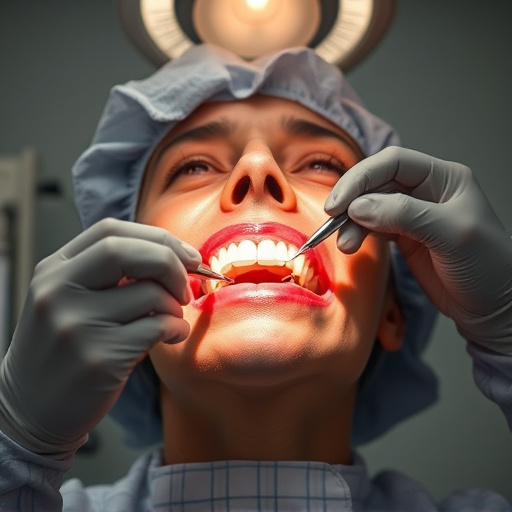
After an oral surgery procedure, proper post-care is essential for a smooth recovery. Patients should follow their surgeon’s instructions diligently, including taking prescribed medications as directed to manage any discomfort or swelling. Resting adequately and avoiding strenuous activities for the first few days is crucial to prevent complications and aid healing. A soft diet is recommended, gradually introducing solid foods as the mouth heals. Staying hydrated and maintaining good oral hygiene are also vital; gentle cleaning and rinsing with salt water can help keep the surgical site clean.
Additionally, patients should monitor their overall health, keeping an eye out for any signs of infection like fever, severe pain, or pus at the surgical site. Regular check-ins with the dentist or surgeon are essential to track recovery progress and address any concerns promptly. For emergency dental care situations or unexpected complications, having a plan in place is invaluable. This may include knowing your dentist’s after-hours policy or having access to a 24/7 dental hotline for quick assistance. Preventive dentistry practices like regular cleanings and check-ups can also contribute to better post-surgery outcomes and overall oral health.
Oral surgery procedures can be life-changing, offering relief from pain and improving overall oral health. By understanding common procedures and exploring sedation options tailored to your needs, you can navigate your treatment with confidence. Remember, proper post-surgery care is key to a smooth recovery. With the right approach, you’ll be on your way to a healthier, more comfortable smile.









